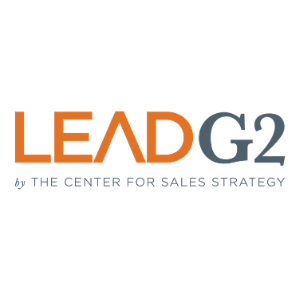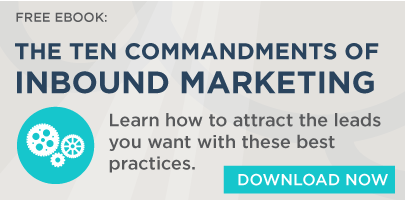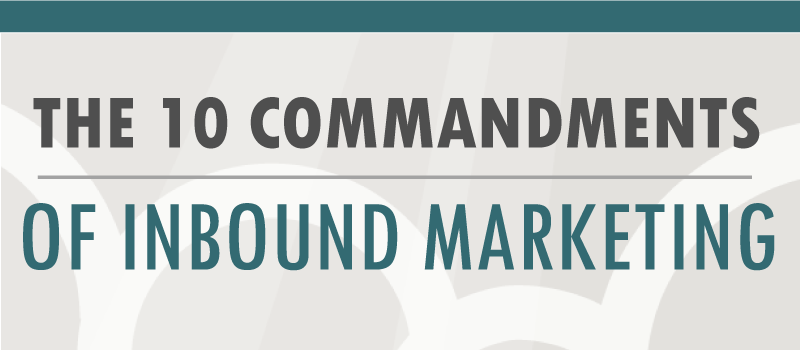Inbound Marketing Commandment #6: Always Be Publishing
As part of the LeadG2 series on "The 10 Commandments of Inbound Marketing" we're looking at the importance of each one, and discussing why they can’t...
3 min read
 LeadG2
:
October 31, 2016
LeadG2
:
October 31, 2016


As part of the LeadG2 series on "The 10 Commandments of Inbound Marketing" we will look at each of these ten commandments and why these principles are ones that you can’t ignore. The fifth of The 10 Commandments of Inbound Marketing is: You must have someone responsible for your inbound marketing program. (Tweet This)
Every successful inbound marketing program has someone accountable and in charge of the inbound marketing program. Note that even though many companies use inbound marketing agencies like LeadG2, there still should be someone that’s leading the charge and keeping the internal team moving in the right direction and at the right pace.
During the Inbound Marketing and Planning Day that we conduct with every new client, we emphasize the need for identifying someone responsible for a company’s inbound marketing program. The reason for having a designated person responsible is so that someone is ultimately accountable and can make important decisions.
When you are just getting started planning your inbound marketing program, there's a lot of information to take in and lots to accomplish. You need to determine who is going to be involved in your inbound marketing program and what resources will be needed. You also have to determine who your target persona is, develop a content strategy, create a blog and find a way to get your content in front of prospects. That’s a lot to grasp, even before you push the publish button on your first blog post.
It’s at this point in the process that you need to have someone firmly in charge of guiding these efforts, making critical decisions, and putting everything together. While every company is different and not all advice should be followed "to the T," there are best practices to follow.
At this early stage in the planning process, having a few roles identified will make this planning process go more smoothly and create some clear lines of responsibility.
The first role that needs to be defined is the Blog Manager.
Another key role, as every successful inbound marketing effort needs a champion or executive ultimately responsible and accountable for results, is the Blog Publisher.
Making sure that roles and responsibilities of the Blog Manager and Blog Writers are being successfully carried out:
Following this commandment doesn’t guarantee your success, but your chances of success are much higher than if you don’t have anyone on your team responsible for the results of your inbound marketing program.
Make sure to subscribe to the LeadG2 blog to get each of The 10 Commandments of Inbound Marketing and other great blog content delivered to your inbox. Or you can download The 10 Commandments of Inbound Marketing, which includes all 10 of the blog posts and some added content.


As part of the LeadG2 series on "The 10 Commandments of Inbound Marketing" we're looking at the importance of each one, and discussing why they can’t...

As part of the LeadG2 series on "The 10 Commandments of Inbound Marketing" we are discussing each of these ten commandments and the importance of...

Many companies looking to implement a lead generation or inbound marketing program want to know the easiest and most cost-effective way to reach...